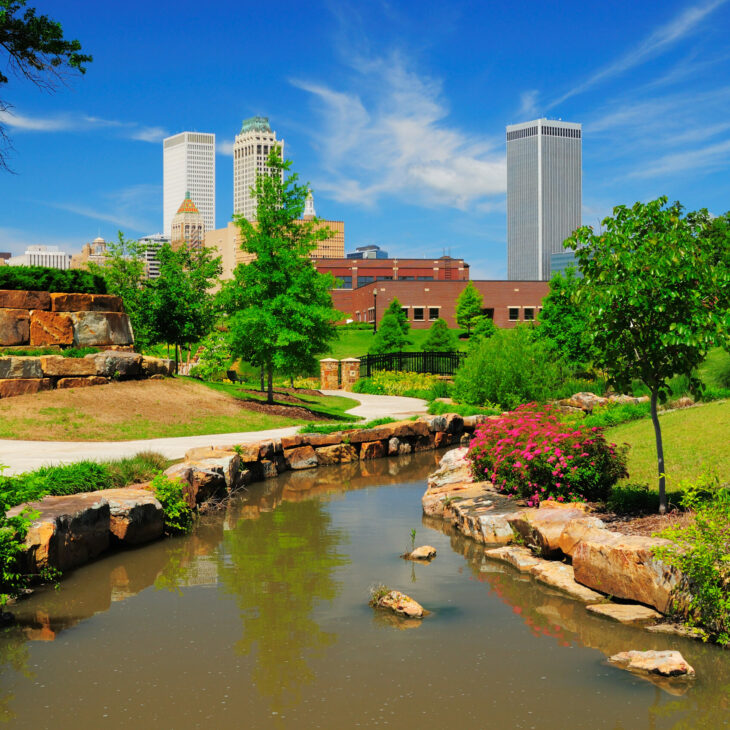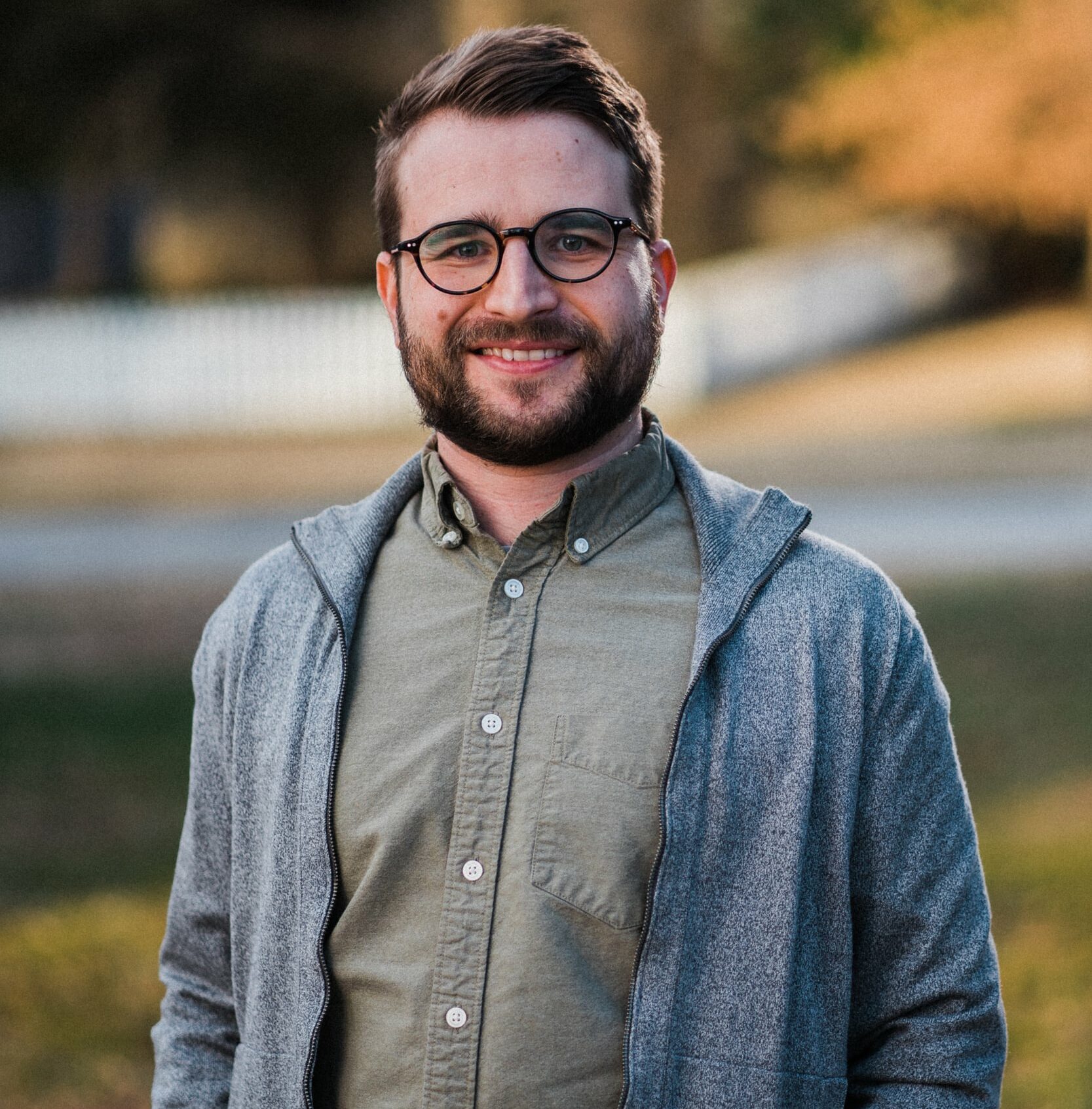Evolution of Religious Identity: A Journey from Kyiv to Tulsa
September 30, 2022

Religious identity, much like cultural identity, is a rich and layered tapestry. This realization became highly apparent to me as I reflected on my family history, upbringing, and community engagement.
I was born in Kyiv, Ukraine, in 1988 to an interfaith family. My mother’s family was Jewish and my father’s was Eastern Orthodox Christian. While both families were living in the secular shadow of imperialistic communism, there was some sense to me that the Byzantine-style icons depicting Mary and Christ hanging over the door and the menorah sitting on a shelf had a deeper meaning.
When I was 6 years old, my family immigrated to the United States under refugee status. We landed in Chicago amongst an established Ukrainian community. My father, who held a doctoral degree in geophysics, was running a pizza route. My mother, also a specialist in geophysics, was cleaning houses. It took some time to get on our feet and learn English. After about a year, my father found a job with the energy industry in the Dallas area. My mother retrained to become a computer programmer. We moved to Texas and began what we thought would be our happy and long life together.
Shortly after moving to Texas, my father passed away from cancer. At 10 years old, I was crushed with grief. I questioned whether a benevolent deity could exist. This event pushed me to embrace rationalism, skepticism, and an atheistic point of view. My outlook on religion was uncommon in the Protestant ubiquity of the so-called “Bible Belt” of the American South.
Simultaneously, my Jewish identity was suppressed and largely kept obscured from my peers. I felt it too unsafe to identify as Jewish and explore my Jewish roots. My mother’s family had described painful stories of systemic discrimination they faced for being Jewish: physical abuse, unequal opportunities in education, and even segregation. Though we were in Texas then, far from Ukraine, I feared being ostracized, or worse, for my Jewish heritage.
After completing high school, I received a scholarship to attend the University of Oklahoma. While attending graduate school, I shed many of the hard lined atheistic perspectives after being introduced to naturalism, pantheism, and global perspectives on religious philosophies. During this time, I met my wife. She serendipitously had a background in comparative religion and was pursuing a master’s degree in Judaic Studies. Through my interactions with her and my encounters with various philosophical texts, I gained a comprehensive sense of how religion impacts individuals, communities, and cultures in multitudinous ways.
After gaining an appreciation for the complexity of religious identity, I developed a passion to do community-oriented volunteer work which initially focused on connecting people with nature and food. While working on my Master of Education degree, I joined a non-profit and helped establish seven community gardens at schools in underserved neighborhoods. I continued my nature education-based volunteerism as I worked for the University of Oklahoma and later Colorado State University-Global.
In 2019, I moved to Tulsa, Oklahoma, through Tulsa Remote, a selective program that attracts diverse talent in order to spur community building and economic development. Immediately upon arrival, I began looking for volunteer opportunities to serve communities in need. Through this search, I met a leader in the Jewish community who introduced me to the Community Relations Committee of the Jewish Federation of Tulsa. He asked me to join the committee. After several years of impactful work on the committee, I accepted the role of Chair of the Community Relations Committee in 2022.
The aim of the committee is to build bridges of understanding with various segments of the community and to promote equality of opportunity, freedom of religion, separation of church and state, and freedom of thought, opinion, and association. Furthermore, the committee develops programs and materials explaining fundamental issues of peace and security for Jewish communities throughout the world.
The Tulsa community, and particularly the Jewish residents of Tulsa, welcomed me with open arms. I felt a sense of security and belonging that I had never before experienced. This was the first time in my life that I felt comfortable identifying as Jewish and fully exploring that part of my heritage. Rather than seeing my Jewish identity as a risk, I began seeing it as an asset.
In addition to volunteering with the committee, I also found an opportunity in Tulsa to join the Board of Directors of Under the Canopy, an eco-education program that connects people of all ages to each other through active engagement with their natural environment.
Along with my volunteerism, I serve as the Lead of the Tulsa Visa Program, an initiative that provides free immigration assistance and job placement services to help approved candidates and their families resettle in Tulsa. Currently, I am facilitating the relocation of several Ukrainian families who are fleeing the war to come to Tulsa. Upon reflection, it is extraordinary to consider that my religious, cultural, and linguistic background allows me to give others the chance to seek refuge, community, and prosperity.
Throughout my journey from Kyiv to Tulsa, my religious identity has evolved and will surely continue to transform. Ultimately, time and place significantly influence how religion or religious affiliation impacts the self. There is yet much to learn about religious identity, the people around me, and the complexities of life and the natural world we live in.
Share
Related Articles
American Civic Life
American Civic Life
American Civic Life
Americans Support a High Bar for Religious Exemptions to Vaccines

Vyacheslav Khrapak
Vyacheslav Khrapak earned a Master of Education degree from the University of Oklahoma. Vyacheslav is a published author and editor with over 10 years of organizational leadership experience in the non-profit sector.



